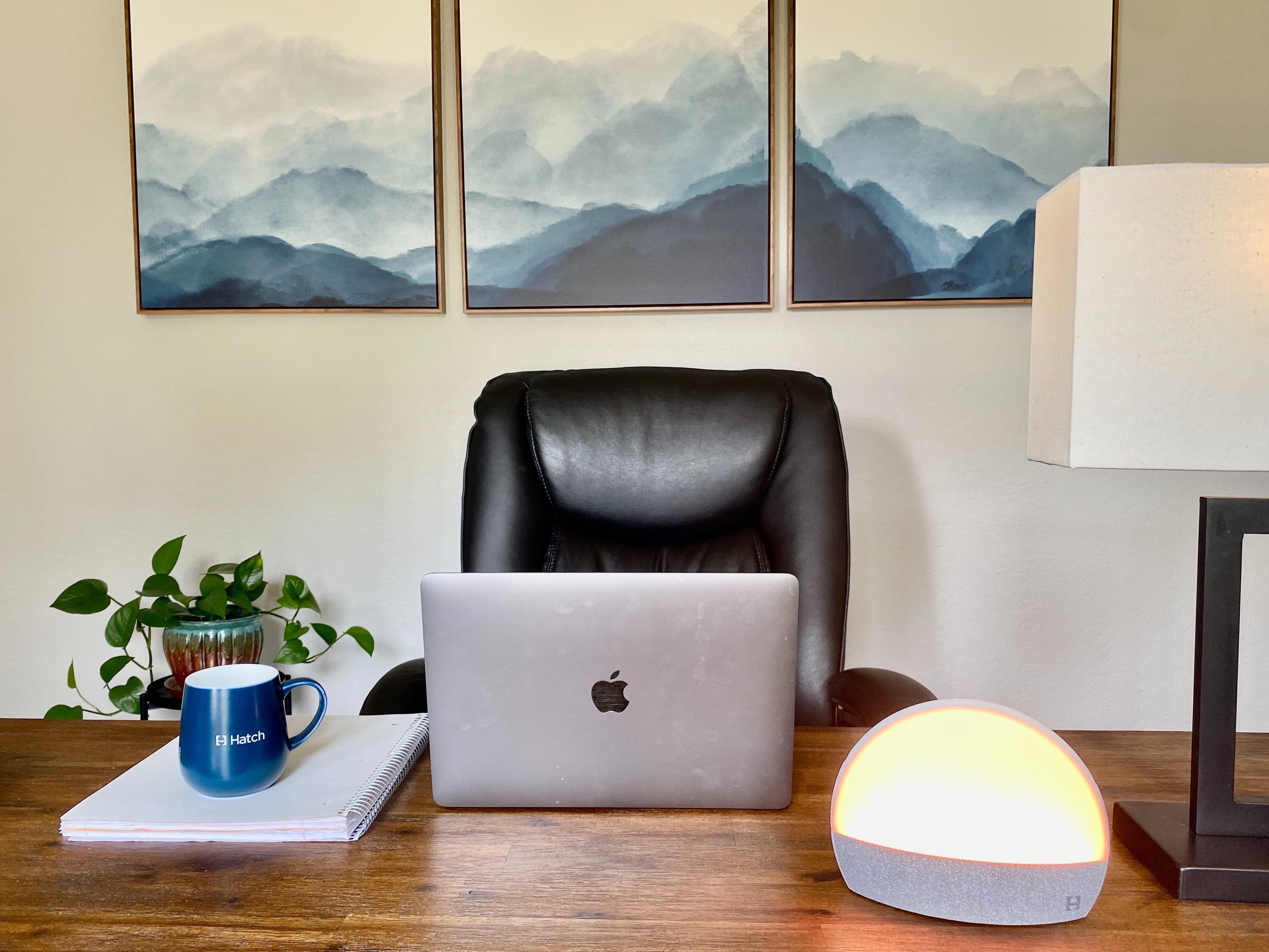How to Maintain Mental Health When Working From Home

It’s no secret that the pandemic has changed the way we move through the world, and how we live and work, too! A significant percentage of companies have shifted to remote or hybrid models of employment (working part-time at home) — with people shifting from commuting every day to working from home and taking meetings between childcare and household chores. Transitioning from in-person meetings to strictly video calls can lead to Zoom fatigue. And if you’re a parent, between juggling childcare, pickups, and drop-offs, you’re likely no longer living a separate, balanced work and personal life anymore.
These are big changes! How do we maintain our mental health with this shift? We’ve rounded up our favorite ways to engage in self-care and rest — nurturing your mental health as you work from home.
1. Designate a Workspace
While we may not all have the luxury of a private office in our home, we can dedicate a specific space in our home for work — whether it’s a corner in the living room or at the kitchen table. Consider separating your workspace from the areas you use for leisure time. For example, try committing to not working in your bedroom, your dearly beloved place of rest.
Have you determined your workspace? Ok, great! Now’s the time to decorate it with photos, inspiration quotes, plants, and other items that leave you feeling inspired and help boost your mood. Ta-da, productive and peaceful workspace unlocked.
2. Create Routines & Rituals
Sweatpants may be the unsaid foundation of working from home, but routine is the unsaid backbone of productivity. This includes a routine to get you started with your workday and a personal routine, too. When you’re not leaving the house, it’s easy to let this fall to the wayside. For a personal routine: Determine your ideal wakeup time, and try to wake up at the same time each day. Create a custom Restore routine with meditation, take time to journal, and get sunlight first thing in the morning, if possible, which will help your next night’s sleep! Set aside time for self-care before you start your day, reading with a cup of coffee or listening to your favorite podcast before you jump into your busy day.
Create a ritual to begin and end your workday when sitting down at your desk. Perhaps you light a delicious-smelling candle. Or have a cup of tea. When you finish a big project or task, maybe you and your coworkers celebrate each other on Slack. When you can, continue doing the things you’d be doing pre-pandemic to get ready for work, and as a ritual, try them at home.
3. Take breaks!
It can be challenging to pause when it’s so easy to head to the kitchen, grab lunch, and eat in front of your laptop. When you’re able, take a true lunch break, step away from screens and Slack, and mindfully enjoy a meal. Your mental health will thank you. Take breaks throughout the day, too — setting off for a walk in your neighborhood, or down the hill to the coffee shop.
A few times a day, stop, stretch, and disconnect from electronics. It’s rare that you’d be sitting for hours straight in the office without moving. Consider taking a quick meditation break in a peaceful space in your home. Try to incorporate movement and rest into your day when you can!
4. Boundaries, boundaries, and more boundaries
Work boundaries help protect our time, energy, and purpose and play a large role in how fulfilled we feel. Some work boundaries are clear and functional, and others may be more flexible. When working from home, setting boundaries will ensure you don’t suffer from burnout and feel as fulfilled as possible professionally!
Some examples of boundaries you might set at work are turning on “away” notifications after designated work hours, and choosing to log out of your email after a certain time of day. Letting your partner know you’re not available to chat until lunchtime and even deleting distracting apps from your phone during work hours. It can be tough to set boundaries in general, especially regarding work and home, but the rewards are plenty. Creating boundaries and space doesn’t mean we no longer care or are passionate about our jobs — it actually increases our capacity to stay passionate, motivated, and dedicated.
5. Take Time to Connect
Working from home means less physical interaction, chats with coworkers in the break room, in-person meetings, and happy hours. Many of the social cues we pick up on from in-person interaction are absent when meeting on Zoom, and there’s no office kitchen to catch up, either.
While you probably don’t miss your commute or all the meetings, the lack of in-person interaction means we need to find different ways to connect. Creativity is key when connecting virtually. Set up these times and ways to connect consistently to avoid feeling alone and isolated. Designating set time to connect each week will ensure that they are already in place!
Overall, working from home can benefit your mental health. Using the time you’d use commuting towards restful and relaxing activities, like sleeping longer, going on a walk, meditating with your Restore, spending time with family, or meeting a friend for coffee can positively impact your mental health.
Working remotely or in a hybrid model can be a shift and adjustment to life and work, even two years into the pandemic. Don’t expect to implement all of these ideas immediately. Change and adopting new habits take time — start small. Which tactic seems easiest to implement? You can start doing that today. (Yes, today!) And remember, you don’t have to do it perfectly right away. Give yourself time and grace as you develop new habits. You’ve got this!